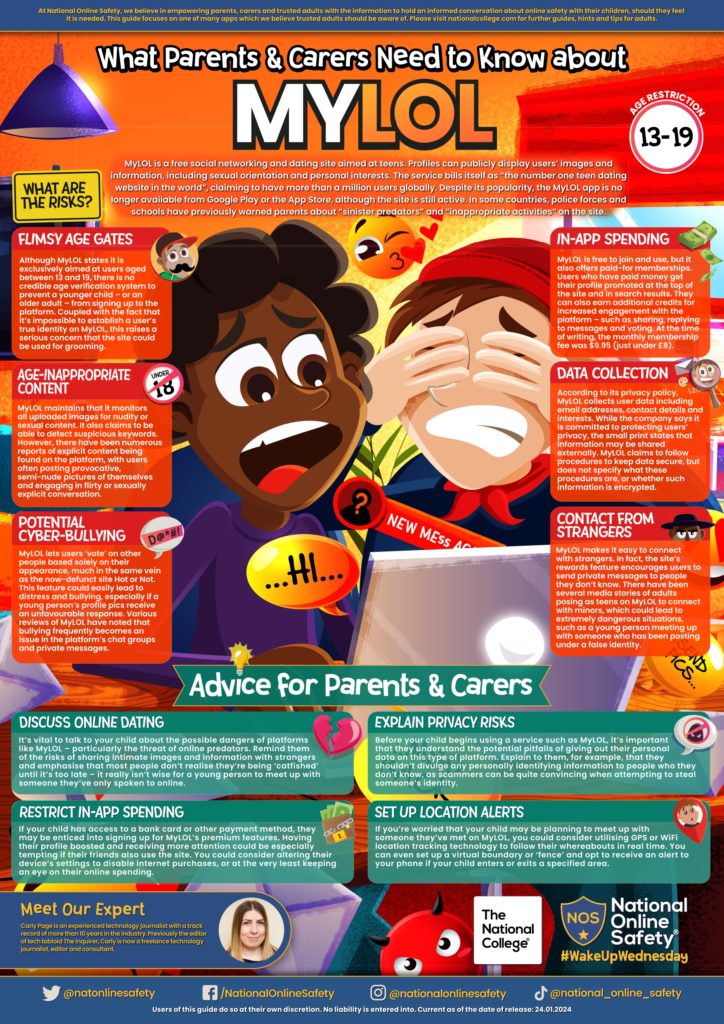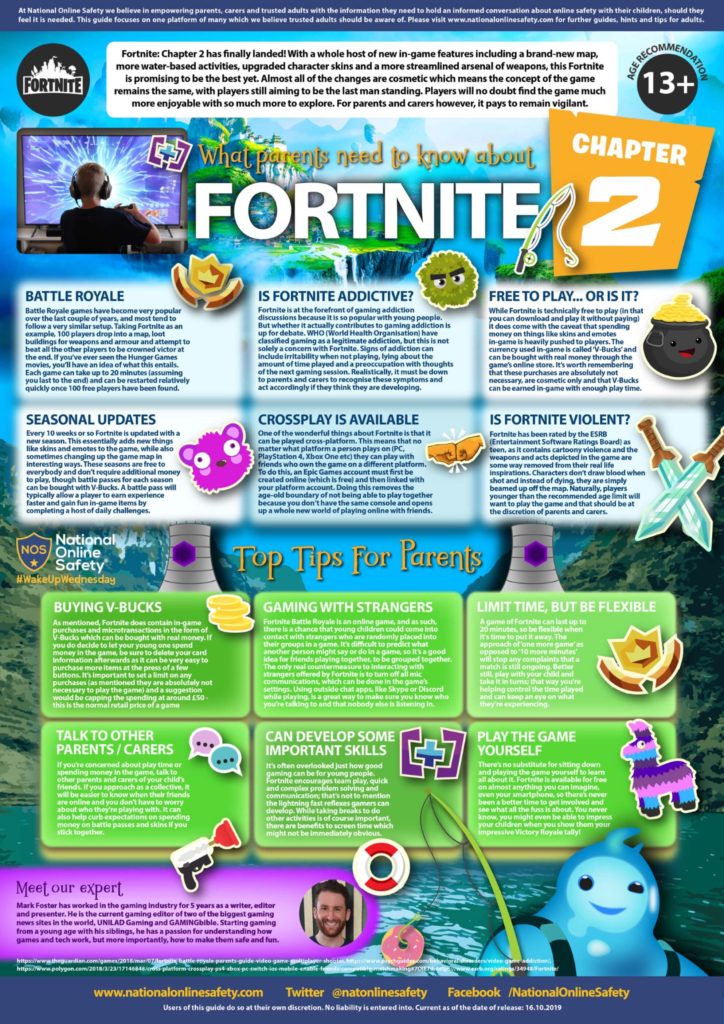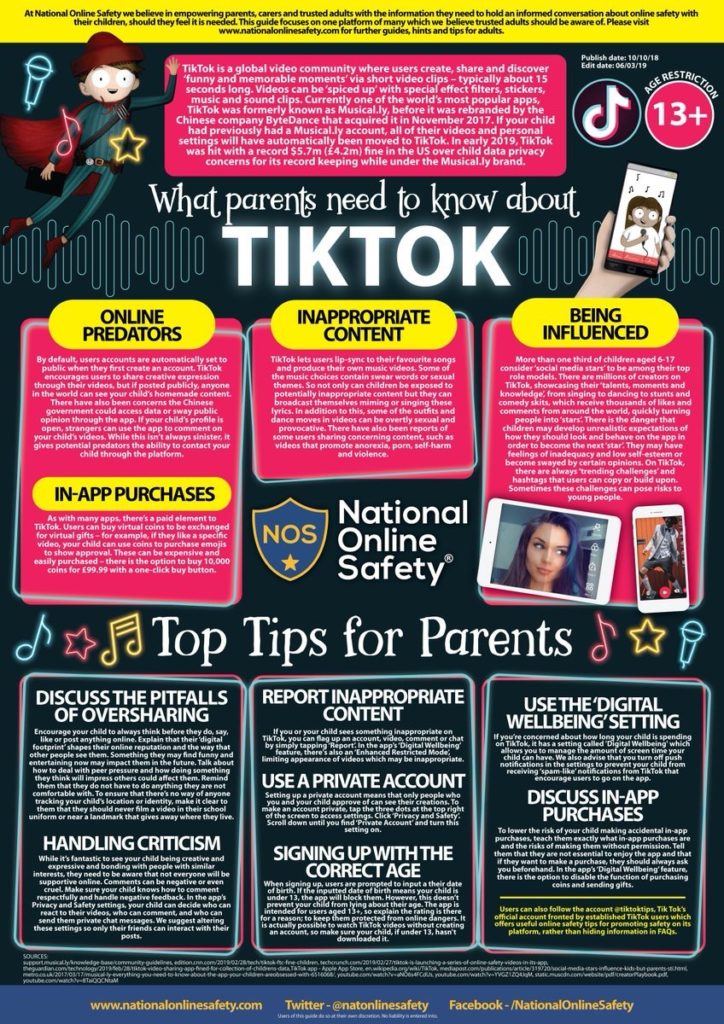“The internet is amazing. Children can play, learn, create and connect – opening up a whole world of exciting possibilities. But with the digital world changing all the time, how can you make sure your child’s staying safe?” – NSPCC Website
Children start using computers from a very early age and are increasingly using the Internet more and more whether at home, in school, on their mobile phones or on a games console. With this in mind, Internet safety and knowing how to help protect children and young people online is essential.
Just as we want to keep our child safe in the ‘real’ offline world, we will want to do the same in the virtual online world. It is important that we understand enough about the Internet to keep our children safe from harm but it is equally important that we equip our children with the skills they need to keep themselves safe so they can experience the Internet positively and responsibly.
- 96% of 8-11 year olds used the internet in 2013 (Ofcom, 2013)
- Access to the Internet using a mobile phone more than doubled between 2010 and 2014, to 58% (Office for National Statistics, 2014).
- Children aged 8-11 spend an average of 9.2 hours online per week. As they get older they tend to spend more time online (17 hours per week for 12-15 year olds) (Ofcom, 2013)
- 36% of 9-12 year olds have a Facebook profile (Childwise Monitor Report, 2012)
Please click any of the links below to learn more:
- Grooming
- Social Networking
- Sexting
- Cyberbullying
- Gaming (information on Fortnite below)
- Searching
(Source – Parents Protect website)
Please read this update from Northumbria Police regarding sharing images and videos online as well as having a look through their Emoji and Slang Dictionaries.
Drugs that appear to be sweets
Please read the following document for more information on drugs that appear to be sweets
Online Radicalisation and ACT Early
The impact of Covid-19, social isolation and a rise in hateful extremism online is creating a ‘perfect storm’ which is making more young people vulnerable to radicalisation and other forms of grooming.
But parents, friends and families can now get specialist support to stop their loved ones being drawn into harmful activities or groups, with the launch of ACT Early – a new dedicated safeguarding website and advice line from the specialists at Counter Terrorism Policing (CTP). This new resource will provide advice, guidance and support for anyone who is concerned that someone they know may be at risk from being radicalised by terrorists or extremist content online.
Family and friends are best placed to spot the worrying behaviour changes which can indicate that a loved one is heading down a path towards terrorism, but currently just 2% of referrals into the Government’s anti-radicalisation programme Prevent come from that group of people.
Prevent is just that – a preventative programme, delivered locally by teachers, healthcare practitioners, social workers, the police, charities, and religious leaders. It places protection around people vulnerable to radicalisation, stopping them from being drawn into terrorism – regardless of the ideology. It works in a similar way to safeguarding processes designed to protect people from gangs, drug abuse, and sexual exploitation. And with Covid-19 preventing regular access to schools, social workers and mental health support, specialists at CTP are concerned that people who need help are not getting it – which makes it more important for friends and family to use the new ACT Early resources to understand what might be happening to their loved one and what support Prevent can provide.
If you are worried that someone you know is being radicalised, visit http://www.actearly.uk/ You won’t be wasting our time and you won’t ruin lives, but you might save them.
For help and advice visit www.actearly.uk, or call the national Police Prevent Advice Line on 0800 011 3764, in confidence, and our specially trained Prevent officers will listen carefully to your concerns
Please read this important document for information regarding online radicalisation.
10 apps teens are using that parents need to know about

What Parents needs to know about MyLOL
Please click here to download a PDF version of the guide.
What Parents need to know about Fortnite: Chapter 2
Fortnite, one of the biggest video games of all time, has received an update. Fortnite Chapter 2 has a whole host of new in-game features, is more visually appealing and has a brand-new map for players to explore. It’s likely that your child will be spending hours on end getting to grips with the new updates. That’s why we’ve created this guide to help parents and carers understand exactly what Fortnite is all about.
Please click here to download a PDF version of the guide.

What Parents need to know about the TikTok app
TikTok is a global video community where users create, share and discover ‘funny and memorable moments’ via short video clips – typically about 15 seconds long. Videos can be ‘spiced up’ with special effect filters, stickers, music and sound clips. Currently one of the world’s most popular apps, TikTok was formerly known as Musical.ly, before it was rebranded by the Chinese company that acquired it in November 2017. If your child previously had a Musical.ly account, all of their videos and personal settings will have automatically been moved to TikTok.

Please click here to download a PDF version of the guide
There are sources of help, advice and support available to people who have concerns about child sexual abuse. These links are some of the organisations and agencies you can contact for information. As a school we are also always here to offer help and support to any students and their families who are experiencing any of the issues listed above; please don’t hesitate to contact the school if you have any concerns whatsoever.
Our Designated Safeguarding Lead is Mr Callum Brierley, he can be contacted via the school office on 0191 2961432 or [email protected]
https://www.ncsc.gov.uk/blog-post/hacker-games-and-trojan-tales-new-cybersprinter-activities
https://www.ncsc.gov.uk/collection/cybersprinters/the-game
Stop it Now! UK and Ireland
www.stopitnow.org.uk
Helpline – 0808 1000 900
Email [email protected]
Stop it Now! UK and Ireland is a useful website for anyone with concerns about child sexual abuse. The Stop it Now! campaign operates a confidential Freephone helpline for any adult with concerns including those worried about the sexual behaviour of another adult towards children, those worried about their own thoughts or behaviour towards children and those concerned about the worrying sexual behaviour of a child or young person (0808 100 900 or [email protected]).
Child Exploitation and Online Protection (CEOP) Centre
www.ceop.police.uk
The CEOP Centre is the UK’s national police agency set up to tackle child sexual abuse and exploitation. If you are worried about someone’s behaviour towards a child, either online or offline, you can report this at www.ceop.police.uk.
Childnet International
www.childnet-int.org
Childnet International is a non-profit organisation working with others to help make the Internet a positive and safe environment for children.
Internet Matters
www.internetmatters.org
An internet portal which aims to direct parents and carers to credible information on how to keep children safe online.
Childline
www.childline.org.uk
0800 1111
Get help and advice about a wide range of issues, talk to a counsellor online. You can also send ChildLine an email or post on the message boards.
Comparitech
A useful guide to help parents, carers and educationalists to protect children’s privacy online.
Parentline Plus
www.parentlineplus.org.uk
Helpline: 0808 800 2222
Parentline Plus is a national charity that works for, and with, parents. It works to offer help and support through an innovative range of free, flexible, responsive services – shaped by parents for parents.
NSPCC Helpline
www.nspcc.org.uk
NSPCC Child Protection Helpline – 0808 800 5000
The NSPCC is a UK charity dedicated to stopping child abuse. You can call their child protection helpline or contact them via email at [email protected].
Samaritans
www.samaritans.org.uk
08457 90 90 90
Samaritans provides confidential emotional support 24/7 to those experiencing despair, distress or suicidal feelings.
Victim Support
www.victimsupport.org.uk
Supportline: 0845 30 30 900
Victim Support is the national charity for victims of crime in England and Wales.
Citizen’s Advice Guide
www.adviceguide.org.uk
Adviceguide provides information on your rights, including benefits, housing, family matters and employment, and on debt, consumer and legal issues. Produced by Citizens Advice, you can get information for all four UK countries – England, Northern Ireland, Scotland and Wales.
www.chatdanger.com
http://www.childnet.com/young-people/secondary
A site all about the potential dangers of interactive services online like chat, IM (instant messaging), online games, email and on mobiles.
Kid Smart
www.kidsmart.org.uk
Teaches children and adults about the internet and being a SMART surfer.
Barnardo’s
www.barnardos.org.uk
A children’s charity working to improve the lives of children.
Action for Children
www.actionforchildren.org.uk
A children’s charity that supports and speaks out for the UK’s most vulnerable and neglected children and young people.
The Lucy Faithfull Foundation
www.lucyfaithfull.org.uk
The Lucy Faithfull Foundation (LFF) is the only UK-wide child protection charity committed solely to reducing the risk of children being sexually abused. LFF’s staff work with all those affected by abuse including adult male and female sexual abusers; young people with inappropriate sexual behaviours; victims of abuse and other family members.
The Home Office Disclosure Scheme (Sarah’s Law)
Keeping children safe: your right to ask for a police check
www.direct.gov.uk/en/Parents/Yourchildshealthandsafety/WorriedAbout/DG_189569?CID=Parents&PLA=url_mon&CRE=keepingchildrensafe
If you are worried about someone in your child’s life, you can get them checked by the police to see if they have a record of child sexual offences. You can access the above to find out what you need to do to get someone checked.
MOSAC (Mothers of Sexually Abused Children)
www.mosac.org.uk
MOSAC is a voluntary organisation supporting all non-abusing parents and carers whose children have been sexually abused. They provide advocacy, advice and information, befriending, counselling, play therapy and support groups following alleged child sexual abuse. Visit their website or call their national helpline on 0800 980 1958.
NAPAC
www.napac.org.uk/
NAPAC is the National Association for People Abused in Childhood. It is a registered charity providing support and information for people abused in childhood.
SURVIVORS UK
www.survivorsuk.org/
Helpline: 0845 1221201.
Survivors UK provides information, support and counselling for men who have been raped or sexually abused. Thousands of men contact them each year.
The Internet Watch Foundation
You can report child sexual abuse images hosted anywhere in the world, criminally obscene adult content hosted in the UK and non-photographic child sexual abuse images hosted in the UK, to the Internet Watch Foundation at www.iwf.org.uk.
Parent Port
www.parentport.org.uk
Parent Port is a website that has been set up to help parents, grandparents, guardians and carers make their voices heard in relation to media content they find inappropriate for children.
Parents Against Child Sexual Exploitation (Pace)
www.paceuk.info
Parents Against Child Sexual Exploitation (Pace) works alongside parents and carers whose children are or are at risk of being sexually exploited by perpetrators external to the family. They also offer guidance and training to professionals on how child sexual exploitation affects the whole family. They were formerly known as CROP.
Lifecentre
www.lifecentre.uk.com/
Lifecentre is a UK based charity that supports survivors of rape & sexual abuse. It offers a national helpline and a counselling team based in Sussex, England.
CCPAS
http://www.ccpas.co.uk/
CCPAS (The Churches’ Child Protection Advisory Service) is the only independent Christian safeguarding charity which provides a 24 hour confidential helpline; Safeguarding policies; Professional training and advice; Disclosure checks; Breaking news updates and Support and resources. CCPAS exist to safeguard both children and vulnerable adults throughout the UK. They work to help those throughout the UK who are, or have been, affected by child abuse and similar issues. They also produce literature for parents. Subjects include the development of children’s personal safety skills and helping children who have been abused. For more information and to see their range of free downloadable leaflets visit: https://www.ccpas.co.uk/info/help.
British Association for Counselling and Psychotherapy
www.bacp.co.uk
Provides a list of counsellors and psychotherapists and professional bodies offering therapy.
The Blast Project
https://www.mesmac.co.uk/projects/blast
The Blast project is the UK’s leading male only sexual exploitation project supporting and advocating for boys and young men. They deliver 1.1 emotional and practical support,: group work in educational settings, and training and support for professionals. They also offer an anonymous reporting mechanism on their website for anyone concerned about a boy being sexually exploited. In addition to online and phone support, face to face contact is available in Leeds and Bradford and other services are availabe nationally. More information is available on their website.
Thinkuknow
https://www.thinkuknow.co.uk/
Thinkuknow is the education programme from NCA-CEOP, a UK organisation which protects children both online and offline.
